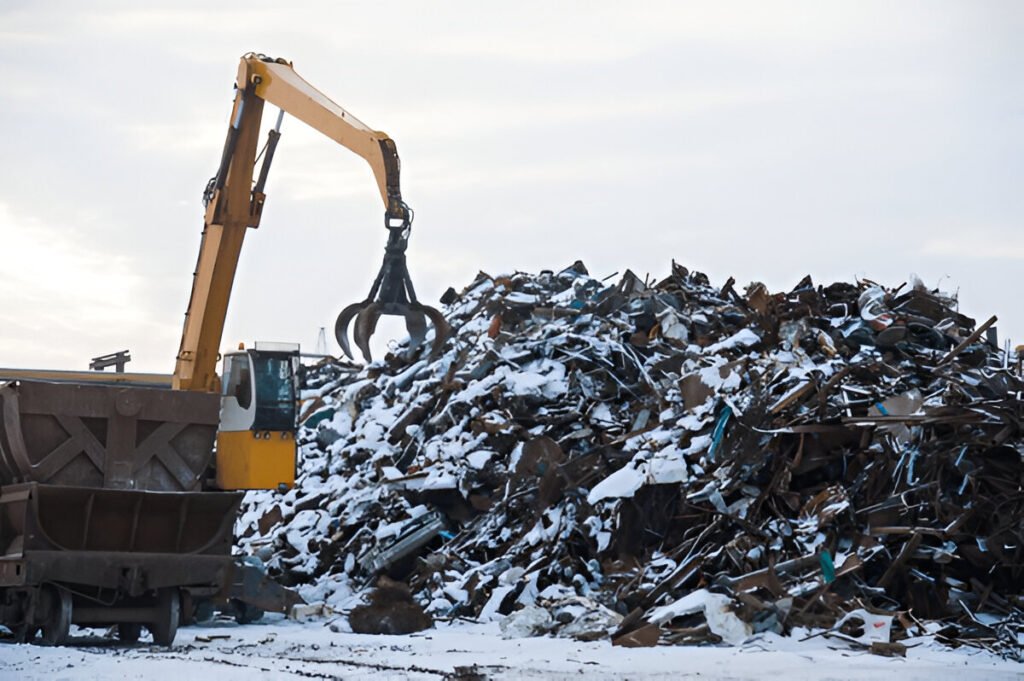In a world where sustainability is no longer optional, Industrial Scrap Metal Recycling plays a powerful role in preserving our environment. Industries often produce massive amounts of waste—from old machinery and electrical parts to heavy-duty transformers. Without proper disposal, these materials can contaminate landfills, harm ecosystems, and waste valuable resources.
That’s why forward-thinking companies are turning toward electrical equipment recycling and sustainable scrap practices. In this blog, we’ll explore how both industrial scrap metal and electrical equipment recycling not only protect the environment but also bring cost and efficiency benefits to companies.
Why Industrial Scrap Metal Recycling Matters
Every industrial site generates leftover metals—steel, aluminum, copper, and more. These aren’t just waste; they’re resources. Recycling them prevents mining of new materials and reduces greenhouse gas emissions. Most importantly, Industrial Scrap Metal Recycling helps businesses contribute to a cleaner planet.
When companies partner with reliable industrial scrap metal buyers, they’re doing more than cleaning up—they’re joining the circular economy.
Electrical Equipment Recycling: Beyond Just Wires
Recycling electrical components goes far beyond unplugging a machine and throwing it in a bin. Industrial electrical waste includes:
- Scrap wire
- Motors
- Circuit boards
- Transformers
- Control panels
All of these contain valuable metals that can be reclaimed. Recycling these items not only supports the industrial recycling economy but also prevents hazardous waste from seeping into soil and water.
Environmental Benefits of Recycling Industrial Scrap
- Prevents Resource Depletion: Mining new metal drains natural reserves and consumes large amounts of energy. Recycling one ton of steel saves 2,500 pounds of iron ore.
- Reduces Landfill Waste: Scrap from electrical equipment and machinery takes up huge space in landfills. Recycling drastically cuts down this volume.
- Lowers Pollution: The process of refining virgin metal emits significantly more carbon than recycling used metal.
- Protects Ecosystems: Disposing industrial waste improperly can introduce toxins into nearby water sources and soil.
Industrial recycling also includes dismantling transformers, which, when done correctly, prevents toxic materials like PCBs from leaking. Experts in transformer dismantling follow protocols that ensure safe, green processing.
How the Recycling Process Works
Recycling begins with sorting the material—separating metals from plastic and other waste. Then it moves to shredding, melting, and purifying the metals. These materials are then sold to manufacturers to be reused in new products, creating a full-circle system.
At JJ Liquidations, state-of-the-art industrial recycling equipment is used to safely break down and repurpose large-scale electrical equipment and scrap.
Businesses Are Now Selling Scrap Metal for Cash
Modern companies are realizing that their scrap has value. Old wiring, obsolete control panels, or heavy machines sitting in storage could be converted into cash. Reliable buyers offer competitive prices and often provide on-site pickup, making it easy to sell your scrap metal without halting operations.
Whether you’re a factory upgrading old machines or a demolition contractor clearing a site, selling metal waste can recoup costs and improve project margins.
Types of Equipment Commonly Recycled
- Transformers
- Turbines
- Diesel Generators
- Circuit Breakers
- Conduits and Scrap Wire
- Panel Boards
For large-scale sites like factories, power plants, or data centers, complete industrial dismantling services are available. This includes everything from breakdown to responsible demolition disposal.
Trusted Partners in Industrial Scrap Metal Recycling
Choosing the right partner is crucial. You want a buyer who offers competitive pricing, environmentally responsible processing, and convenience. Industrial scrap buyers like JJ Liquidations offer a complete service—from evaluation to removal—backed by environmental compliance.
They are considered among the top industrial scrap buyers in the USA because they serve across industries—power, telecom, manufacturing, and more.
The Link Between Sustainability and Business Reputation
Customers today are paying attention. They want to work with brands that value the environment. Companies that practice Industrial Scrap Metal Recycling position themselves as forward-thinking and responsible.
This not only builds trust but also strengthens brand loyalty. It’s not just good ethics—it’s good business.
Future of Industrial Scrap and Electrical Equipment Recycling
As technology advances, recycling will become even more efficient. With AI-driven sorting and smart equipment, the recovery rate for valuable metals is rising. This will reduce dependency on newly mined metals and continue pushing the sustainability agenda forward.
The scrap recycling industries are also evolving—investing in better techniques, cleaner methods, and advanced tracking systems to ensure compliance and transparency.
Final Thoughts
Industrial Scrap Metal Recycling isn’t just a trend—it’s a necessity. As industries grow and technology evolves, the responsible disposal and reuse of equipment and materials will become even more important.
By working with trusted recycling partners, businesses can reduce waste, cut costs, and play a part in protecting the planet. It’s a win for the company, and a bigger win for the Earth.



